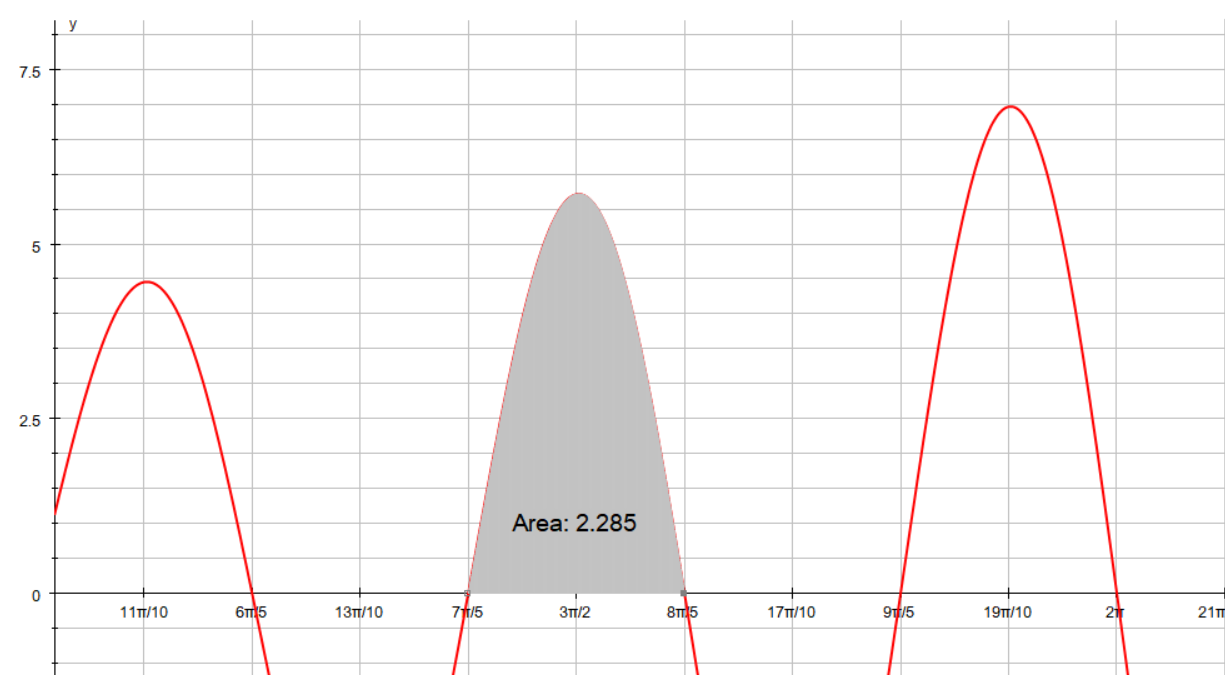This question is about f(x= -(x+1)sin(5x). ?
1 Answer
See below.
Explanation:
a). If we test the end points of the interval
We can see that these are zeros, if they are consecutive zeros and above the x axis then a point in the interval will give a positive output:
b).
We have already ascertained the interval is above the x axis, so our integral will be:
c). If our area is solely above the x axis, we do not need to integrate in parts.
Plugging in upper and lower bounds:
Graph:

I haven't included the calculations for finding the integral, in order to keep the answer from being too long.

